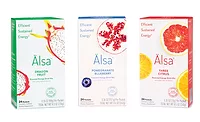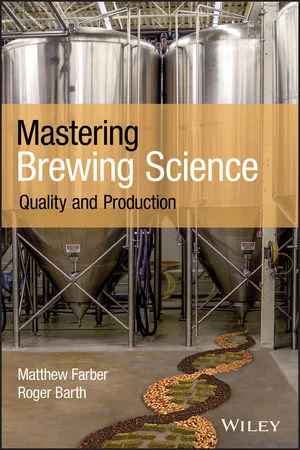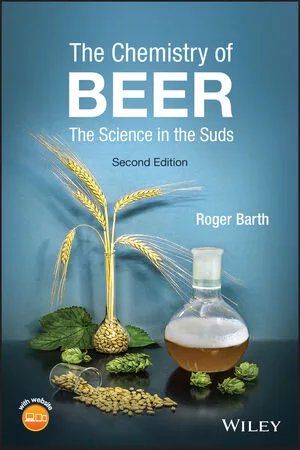Consumers seek science-backed cognitive health ingredients
Beverages keep up with healthy aging trends
Games like Nintendo’s Brain Age and websites like lumosity.com can help users exercise their brains to keep them in tip-top shape while making cognitive training fun. For example, lumosity.com, which was developed by neuroscientists, allows users to train their brains in the areas of memory, attention, speed, flexibility and problem solving while playing games. By playing these games for 10 to 15 minutes a day, lumosity.com users can achieve a full brain workout, according to the San Francisco-based company. Beverages also can offer a quick and convenient way to boost brain performance through ingredients and formulations that deliver benefits desired by many consumer groups.
According to a May-June 2011 Datamonitor Consumer Survey, 28 percent of consumers reported being interested in food and beverage products that improve alertness, notes Jeremy Bartos, senior innovation scientist at Evanston, Ill.-based Glanbia Nutritionals.
And when it comes to cognitive health, now is the time for beverage-makers to strike, suggests Sam Wright IV, chief executive officer of The Wright Group, Crowley, La.
“It is hard to imagine a better demographic and economic climate than the one there is today for cognitive health products, especially beverages due to the convenience factor,” he says. “Interest in cognitive health continues to increase as a function of the aging population, credible science and positive media coverage.”
The baby boomer population, which represents the largest consumer demographic at the moment, is particularly interested in products that offer cognitive benefits, says Russ Hazen, raw materials and innovations specialist for Fortitech Premixes, a Schenectady, N.Y.-based subsidiary of DSM Nutritional Products. Among this population that focuses on the concept of healthy aging, 55 percent of consumers are worried about losing their mental capacity, Glanbia’s Bartos says, citing a Natural Marketing Institute U.S. survey. In fact, mental and cognitive health is one of the top health concerns for America’s aging population, following cardiovascular disease and cancer, adds Matt Phillips, chief commercial officer for Nutegrity, Irvine, Calif.
One of the primary cognitive concerns of this group is stemming cognitive decline or “making sure you’re able to keep what you should have already,” Glanbia’s Bartos explains. This involves interest in cognitive health ingredients that prevent the deterioration of the neural pathways that lead to the brain, he explains.
However, because the effects of these types of ingredients are not immediately felt, this increasingly knowledgeable generation also seeks science-backed ingredients, explains Gregory Drew, director of the food and beverage group at Pharmachem Laboratories Inc., Kearny, N.J.
Research has shown that phosphatidylcholine, a fat-soluble phospholipid molecule, plays a large role in maintaining neuronal pathways, Glanbia’s Bartos says. However, as a phospholipid, it is hard for beverage formulators to include it in solution. Therefore, water-soluble versions, such as New York-based Kyowa Hakko USA Inc.’s Cognizin citicholine ingredient, which is a precursor to phosphatidylcholine, can be used instead, he notes. Cognizin plays an important role in neurotransmission by supporting brain metabolism, health and performance, the company says. It also helps maintain normal levels of acetylcholine, a brain chemical that helps maintain normal cognitive function, and assists in sustaining the health of mitochondria in the brain for higher levels of energy, Kyowa Hakko adds.
In a 2012 trial, researchers at the Brain Institute at The University of Utah found that middle-aged women taking 250 mg of Cognizin showed improved attention spans and inhibition in attention tests, explains Karen E. Todd, director of marketing for Kyowa Hakko USA. Results after supplementation showed that individuals who consumed low or high levels of Cognizin produced fewer commission errors in a neuropsychological test that measures sustained and selective attention and impulsivity compared with members of a placebo group, she says.
Previously, a similar study was conducted in 2008 at the Harvard-associated Brain Imaging Center at McLean Hospital in Belmont, Mass. Researchers observed increases in brain activity, particularly when performing tasks that required sustained attention or memory, among middle-aged adults who had consumed 500 mg of Cognizin for six weeks, Todd notes.
In this way, Cognizin has been shown to support recall, mental energy, focus and attention, she says.
Memory also is front of mind among cognitive concerns for the aging population. The Wright Group’s Wright notes that Alzheimer’s disease is even more frightening to some older consumers than cancer. Vitamin E has been shown to slow the progression of Alzheimer’s disease, he adds.
Antioxidants also can help to prevent Alzheimer’s disease, as well as Parkinson’s disease and strokes, among other medical issues, Nutegrity’s Phillips says. “Antioxidants are other compounds that have positively been identified in the protection of some brain functions,” he explains. “Oxidation reactions take place continuously in the body as part of normal cellular function; however, excess production of certain free radicals might play a role in the pathophysiology of many disease conditions … Several studies suggest that antioxidants can help prevent this oxidative damage.”
Nutegrity offers many botanical antioxidant ingredients, including AppleZin, BioVin, BerryVin, CranLife, Euro Black Currant, Lingonol, PhytoTropic, PomActiv and QVida, to offer brain-boosting benefits to beverage formulations.
Stop and go
Like baby boomers, millennials also are seeking products that enhance cognitive health, potentially for their preventative long-term benefits, The Wright Group’s Wright says. Additionally, the increase in multitasking activities has been a strong driver for consumers wanting to keep their brains sharp, Kyowa Hakko USA’s Todd adds.
On average, the U.S. population consumes 300 mg of caffeine a person each day to fuel mental alertness, according to the U.S. Food and Drug Administration’s December 2012 report “Caffeine Intake by the U.S. Population.” More than 97 percent of the caffeine intake of teenagers and adults comes from beverages, it reports.
Caffeine is considered an energy and focus ingredient because it is a neurostimulator, Glanbia’s Bartos explains. “Once it gets in the body, it will activate specific pathways that get your neurons going and helps you focus a little bit and gives you energy,” he says. However, because the human liver identifies caffeine as a toxic substance, the organ metabolizes caffeine so that it can be excreted as waste, he explains. Some caffeine can be absorbed by the body and used, which is the effect consumers feel after consuming a caffeine-infused beverage, he says. The body works to get rid of the rest of the caffeine as quickly as possible, and when there’s no more caffeine in the body to sustain its energy-inducing effects, consumers can experience a crash, he adds.
Some forms of caffeine can slow absorption to avoid energy spikes and crashes, Bartos says. Irvine, Calif.-based ChromaDex offers PurEnergy, a combination of caffeine and pTeroPure, the company’s 99 percent pure, nature-identical, all-trans pterostilbene ingredient. This form of caffeine offers slower absorption into the body, allowing for extended energy and a more constant supply of caffeine, Bartos explains. In human trials, ChromaDex found that PurEnergy delivers almost 30 percent more caffeine into the bloodstream than ordinary caffeine, with a 30 percent slower rate of absorption than ordinary caffeine, according to ChromaDex. In addition, after six hours, subjects who consumed PurEnergy showed significantly less fatigue, improved energy and alertness, and greater concentration and focus compared with the baseline than subjects who consumed ordinary caffeine, it adds.
On the flipside of this energy curve, consumers also are seeking cognitive health ingredients that offer relaxation benefits. According to the Anxiety and Depression Association of America, Silver Spring, Md., seven out of 10 adults in the United States say they experience stress or anxiety daily, and most say it interferes at least moderately with their lives. In line with this, 27 percent of consumers desire food and beverage products that help them relax and feel calmer, Glanbia’s Bartos says, citing a May-June 2011 Datamonitor Consumer Survey.
This is where ingredients like Rancho Santa Margarita, Calif.-based Blue California’s L-Tea Active come into play. L-Tea Active is a natural L-theanine 98 percent ingredient that has been shown to reduce stress and anxiety and induce relaxation but not drowsiness, the company says. This water-soluble ingredient also can be used to increase concentration and productivity as well as offer better focus and mental clarity, it adds.
A healthy start
American adults also are interested in cognitive ingredients for their children, Pharmachem’s Drew says. Many beverages with cognitive benefits are targeted toward infants, toddlers and children in the early stages of their growth and development, Fortitech’s Hazen notes. Similarly, women who are pregnant or breast feeding also are interested in cognitive health ingredients for prenatal and infant development, Nutegrity’s Phillips adds.
The omega-3 fatty acid DHA is essential for children’s brain development and, therefore, is commonly included in commercial baby formulas, Phillips points out.
However, adding omega-3 fatty acids and other cognitive health ingredients into beverage applications poses some formulation challenges. The brain has one of the highest lipid contents of all of the organs in the human body, with 50 percent of its dry weight consisting of fat, Phillips says. As such, many cognitive health ingredients are fat-based because it is easier for these ingredients to cross the blood-brain barrier to support the brain, compared with water-soluble ingredients, Glanbia’s Bartos says. The fat-based content of these ingredients makes it a challenge to include them in water-based beverages, he points out.
To overcome this, beverage-makers can utilize emulsions to form an encapsulated beadlet that results in a water-soluble, powdered form that can be used in beverage applications, Fortitech’s Hazen says. Nutegrity’s Phillips also recommends that beverage-makers add omega-3 fatty acids as close to the end of the beverage-making process as possible to prevent excessive exposure to air, which can result in ingredient oxidation that produces off-flavors and deteriorates the omega-3 fatty acids.
Despite these setbacks, experts still see a bright future for cognitive health ingredients. Although the vast majority of products with cognitive health ingredients currently are being launched by small to mid-sized companies, functional ingredients hold potential for increasing popularity, Fortitech’s Hazen says. “As more science and research comes to light on the ability of specific nutrients to positively impact our cognitive health, we will see larger mainstream products with these ingredients enter the marketplace,” he says. “Large food manufacturers are likely waiting for the science behind these ingredients to develop before they enter into the category, but with the opportunity that this segment offers, it will only be a matter of time before we seen an explosion of new products on retail shelves.”
Not what you think
Although many cognitive health ingredients target the brain directly through neurotransmitters, other ingredients can offer indirect brain benefits, says Jeremy Bartos, senior innovation scientist at Glanbia Nutritionals, Evanston, Ill.
For example, the bloodstream is an essential pathway for bringing nutrients to the brain and keeping toxins away from the brain, Bartos notes. If blood is not flowing to and from the brain efficiently, the brain will be starving and not functioning optimally, he explains. Therefore, ingredients that support the circulatory system in turn support the brain as they help to deliver oxygen and glucose to the brain, he says.
In addition, as one of the biggest energy sinks in the human body, the brain requires glucose transporters within the body to keep it functioning, Bartos notes. When the brain needs energy, it signals the body to eat to take in glucose, he explains. However, if glucose transporters are not functioning properly, the glucose attained from eating is not transported to the brain efficiently, and the brain continues to signal for more food, he says. Chromax chromium picolinate, a product of Purchase, N.Y.-based Nutrition 21 LLC, is starting to gain interest in the cognitive health field for this reason, he notes. Chromium picolinate has been shown to increase glucose transporter activation, which, in turn, feeds energy to the brain, thus increasing cognitive function and decreasing appetite, he says.
Looking for a reprint of this article?
From high-res PDFs to custom plaques, order your copy today!







